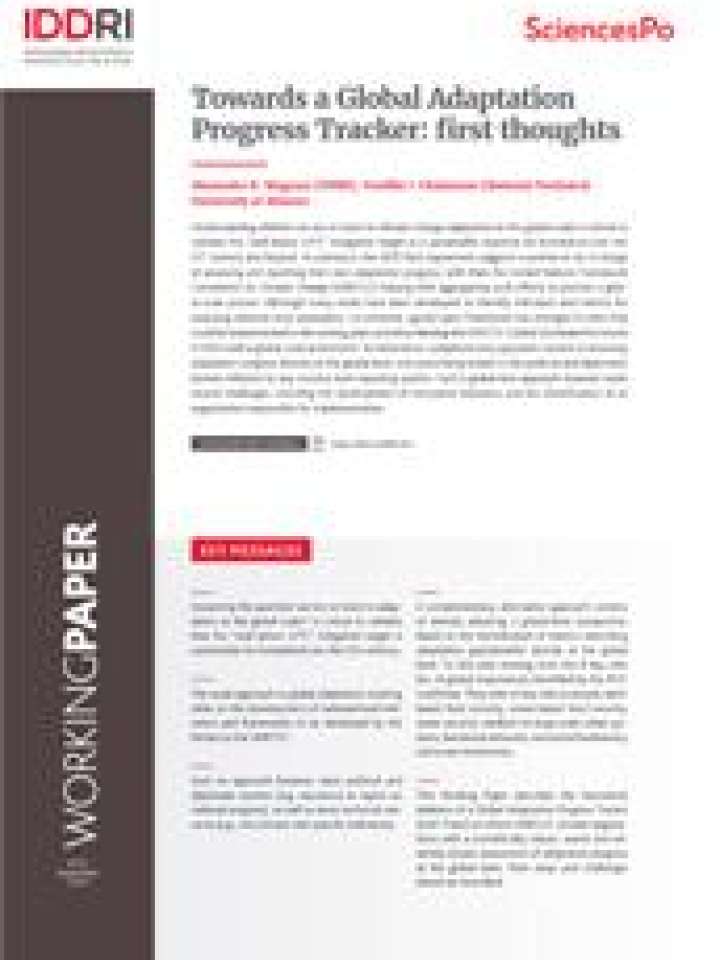Towards a global adaptation progress tracker: First thoughts
Understanding whether we are on track to climate change adaptation at the global scale is critical to validate the “well below +2°C” mitigation target as a sustainable objective for humankind over the 21st century and beyond. In substance, the 2015 Paris Agreement suggests countries to be in charge of assessing and reporting their own adaptation progress, with then the United Nations Framework Convention on Climate Change (UNFCCC) helping with aggregating such efforts to provide a global-scale picture. Although many works have been developed to identify indicators and metrics for assessing national-level adaptation, no universal, agreed-upon framework has emerged to date that could be implemented in the coming years and allow feeding the UNFCCC Global Stocktake first round in 2023 with a global-scale assessment.
This working paper proposes to measure adaptation progress directly at the global level through the development of new indicators and, when necessary, using new technologies. This approach —the Global Adaptation Progress Tracker (GAP-Track)— involves both scientific and political challenges in particular in terms of indicators, methods and implementation of the GAP-Track.
This paper argues that this approach, although not self-sufficient, could help stimulate international research on measuring progress in adaptation, and address some key challenges of the international climate negotiation process.
Explore further

